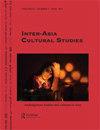Writing in solidarity: Gu Cangwu, Cultural Revolution, Cold War
IF 0.4
4区 社会学
Q4 ANTHROPOLOGY
引用次数: 0
Abstract
ABSTRACTThis article will shed light on the remarkable yet overlooked influence of the Cultural Revolution on renowned Hong Kong writer Gu Cangwu during the Cold War period. Through scrutinizing his untapped works in the 1970s, the article will argue that Gu Cangwu incorporated a Communist perspective in his observations of pivotal local, national, and global events in his poems and writings. Gu’s untapped works show his attempts to use Cultural Revolution ideology and Chinese nationalism as a source of resistance to British colonialism amid Hong Kong’s Defending Diaoyu Island Movement in 1971, a movement in which international recognition of Communist China at the United Nation sparked Gu’s nationalistic fervor and encouraged him to embrace critical realism. The article also puts Gu’s sympathetic portrayals of the Cultural Revolution and Vietnam War in juxtaposition with his decadent narratives of the 1972 Hong Kong landslides, showing that his effort to build local solidarity with Chinese nationals and the people suffering in the global conflict of the Cold War was based on a stance in opposition to capitalist-imperialist-colonial aggression. More significantly, transcending the simplistic Cold War binary between communist totalitarianism versus liberal capitalism and foregrounding the specific experience of the Cold War in the Hong Kong context, the case of Gu Cangwu demonstrates that the production of Hong Kong literature in the 1970s occurred at the intersection between local ideological contestation and global Cold War tensions.KEYWORDS: Gu cangwuCultural Revolutioncultural Cold WarHong Kong literature AcknowledgementsI would like to express my gratitude to the late author Gu Cangwu for giving me his precious time in the interview in 2018. Thanks to my research assistant Wong Shing Kit for his meticulous assistance. The work described in this paper was fully supported by Seed Fund for Basic Research for New Staff, The University of Hong Kong (201807159004).Special termsTableDownload CSVDisplay TableNotes1 The capitalized term “Communism” is particularly used to describe the ideology related to the Chinese Communist Party.2 The worst landslide day in Hong Kong’s history occurred on 18 June 1972. The Hong Kong Observatory measured 653 mm of rain, which was the second-highest amount of rain ever recorded there. Seventy-one persons lost their lives as a result of the mud that flooded more than 70 temporary wooden dwellings in the neighborhood of Sau Mau Ping. Gu Cangwu used the tragedy to criticize the colonial government’s lack of concern regarding the living conditions of underprivileged locals. (Hong Kong Geotechnical Engineering Office Citation2022).Additional informationNotes on contributorsShuk Man LeungShuk Man Leung is an Assistant Professor in the School of Chinese at the University of Hong Kong. Her research specializations include modern Chinese literature, Hong Kong literature, and print culture in Greater China. Her first book is Utopian Fiction in China: Genre, Print Culture, and Knowledge Formation, 1902–1912 (Brill, 2023), and her second book project, Identities in the Cold War: The Cultural Revolution Discourse in Hong Kong Print Media, 1966–1977, is supported by the Research Grants Council, Hong Kong SAR Government. Her major publications have appeared in Asian Studies Review, Modern Chinese Literature and Culture, Cultural Studies, Journal of Modern Literature in Chinese, and Comparative Literature Studies.团结写作:顾沧武、文革、冷战
摘要本文将揭示冷战时期文化大革命对香港著名作家顾沧武的显著而又被忽视的影响。通过对他在20世纪70年代未被开发的作品的仔细研究,本文将论证顾沧武在他的诗歌和作品中对关键的地方、国家和全球事件的观察中融入了共产主义的视角。在1971年香港的“保钓运动”中,顾的未开发作品表明他试图用文化大革命思想和中国民族主义作为抵抗英国殖民主义的源泉。在这场运动中,联合国对共产主义中国的国际承认激发了顾的民族主义热情,并鼓励他拥抱批判现实主义。文章还将顾对文化大革命和越南战争的同情描写与他对1972年香港山体滑坡的颓废叙述并列,表明他努力与中国国民和在全球冷战冲突中受苦的人民建立团结,这是基于反对资本主义-帝国主义-殖民主义侵略的立场。更重要的是,顾苍武的案例超越了简单化的共产主义极权主义与自由资本主义之间的冷战二元对立,突出了冷战在香港语境中的具体经历,表明了20世纪70年代香港文学的创作发生在本地意识形态争论和全球冷战紧张局势的交汇处。关键词:顾沧武文化大革命文化冷战香港文学致谢感谢已故作家顾沧武先生在2018年抽出宝贵的时间接受我的采访。感谢我的研究助理黄盛杰的悉心协助。本文工作得到香港大学新入职人员基础研究种子基金(201807159004)资助。特别术语“共产主义”这个大写的词特别用来描述与中国共产党有关的意识形态。2香港历史上最严重的山体滑坡发生在1972年6月18日。香港天文台测得的雨量为653毫米,是香港有记录以来的第二高雨量。在秀茂坪附近,70多间临时木制房屋被泥浆淹没,71人丧生。顾沧武利用这一悲剧来批评殖民政府对当地弱势群体的生活状况缺乏关注。(香港岩土工程办事处Citation2022)。其他资料投稿人备注梁淑文,香港大学中文学院助理教授。她的研究方向包括中国现代文学、香港文学和大中华区印刷文化。她的第一本书是《中国的乌托邦小说:体裁、印刷文化和知识形成,1902-1912》(Brill出版社,2023年出版),第二本书是《冷战中的身份:1966-1977年香港印刷媒体的文化大革命话语》,由香港特别行政区政府研究资助局资助。主要发表于《亚洲研究评论》、《中国现代文学与文化》、《文化研究》、《中国现代文学学报》、《比较文学研究》。
本文章由计算机程序翻译,如有差异,请以英文原文为准。
求助全文
约1分钟内获得全文
求助全文
来源期刊

Inter-Asia Cultural Studies
Multiple-
CiteScore
0.90
自引率
20.00%
发文量
22
期刊介绍:
The cultural question is among the most important yet difficult subjects facing inter-Asia today. Throughout the 20th century, worldwide competition over capital, colonial history, and the Cold War has jeopardized interactions among cultures. Globalization of technology, regionalization of economy and the end of the Cold War have opened up a unique opportunity for cultural exchanges to take place. In response to global cultural changes, cultural studies has emerged internationally as an energetic field of scholarship. Inter-Asia Cultural Studies gives a long overdue voice, throughout the global intellectual community, to those concerned with inter-Asia processes.
 求助内容:
求助内容: 应助结果提醒方式:
应助结果提醒方式:


